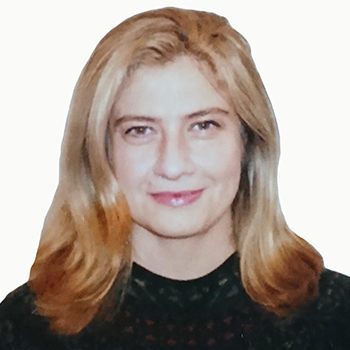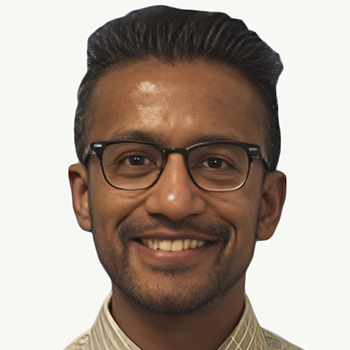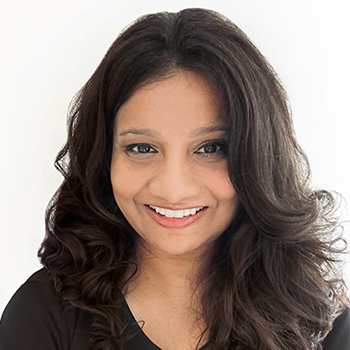Insomnia
Board-certified psychiatrist specializing in insomnia offers immediate help, including insomnia medication and treatment. Contact +1(833)312-4222 for assistance.

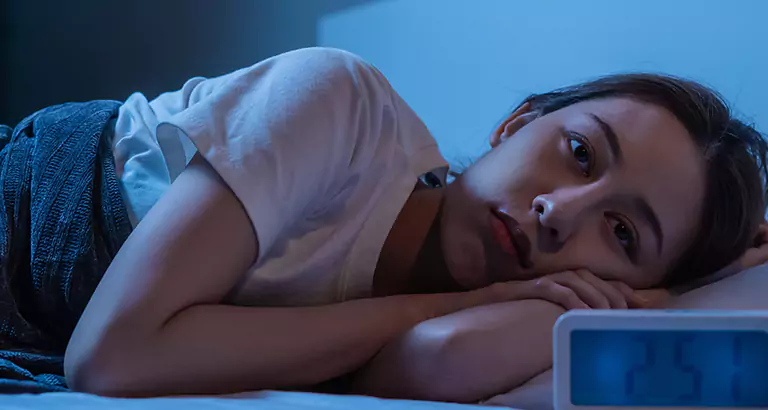
Ain’t nothing wrong, ain’t nothing right and still I sit and lie awake all night! – Bradley Nowell
You may be wondering if you have insomnia. Many of us experience lack of sleep or disturbance of sleep at various times in our lives. However, if lack of sleep is persistent, chronic, or interfering with your day to day life, it is possible that you are suffering from insomnia.
Effective management and treatment of insomnia are extremely essential for long-term health and quality of life. Here at Gaba Telepsychiatry, we offer a wide range of treatments for insomnia that include therapy, nutrition, hormone evaluation, and medication. Our psychiatrists are committed to helping you find the right treatment and supporting you through the recovery process.
What is Insomnia?
The latest edition of DSM-5, a handbook with guidelines for mental health experts diagnosing psychiatric illnesses, defines insomnia as “dissatisfaction with sleep quantity or quality, associated with one (or more) of the following symptoms:
- Difficulty initiating sleep
- Difficulty maintaining sleep, characterized by frequent awakenings or problems returning to sleep after awakenings
- Early-morning awakening with inability to return to sleep”
As per the American Sleep Association, almost 70 million Americans suffer from one or another type of sleep disorder. Nearly 40% of individuals fall asleep during the day and 5% people fall asleep while driving.
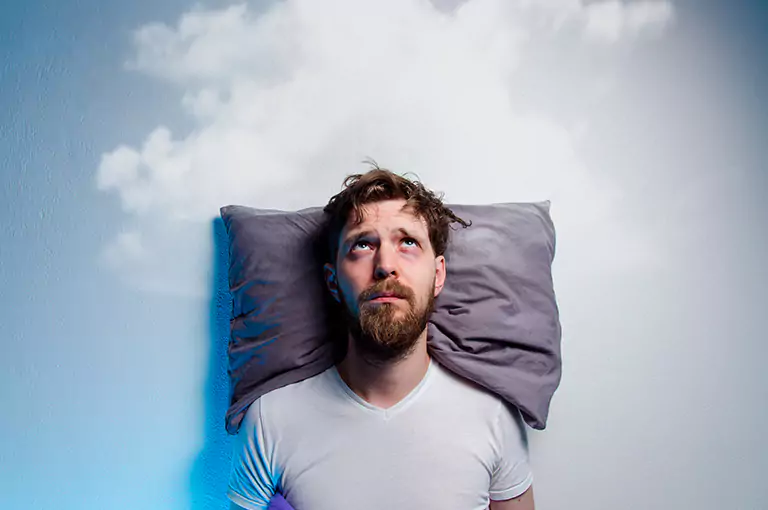
What Causes Insomnia?
There are many causes of insomnia, and in order to treat insomnia effectively it is essential to identify the underlying cause. Almost any medical illness, life event, or stimulant can contribute to insomnia. The most common causes of insomnia include:
- Anxiety, depression, or stress
- Poor sleeping environment
- Irregular sleep schedule
- Use of recreational drugs
- Lifestyle factors such as rotational shifts at work
- Chronic / Acute Medical illness (e.g. heart problems)
- Medications (e.g. antidepressants)
- Specific sleep disorders (e.g. obstructive sleep apnea)
- Aging, hormonal imbalance, pregnancy
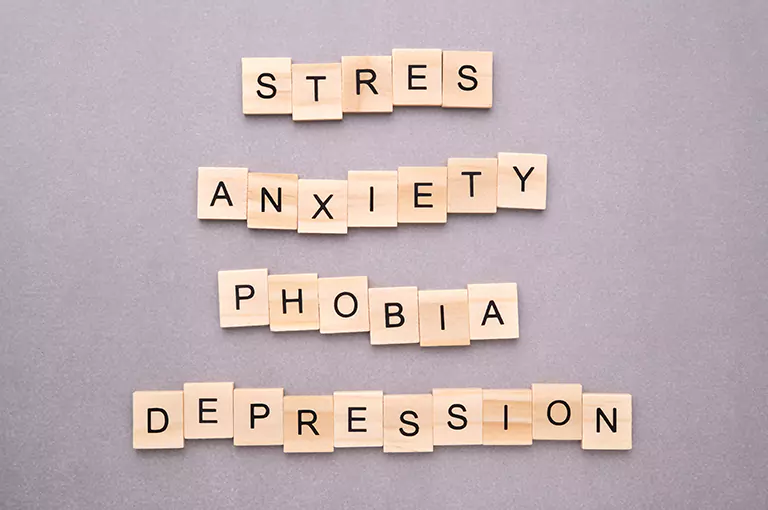
Insomnia Psychiatrist
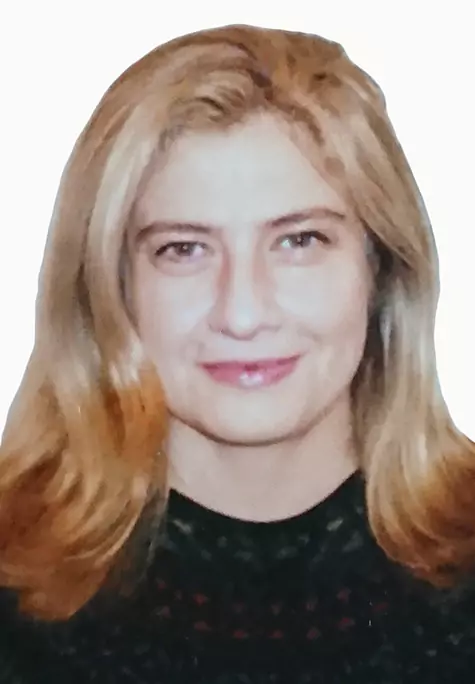
Dr. Valeria Serban
Board Certified Psychiatrist with Multiple State Licenses MBBS (MD)
Dr. Valeria Serban is a board-certified neuropsychiatrist with 20 years of professional experience and a keen passion for treating mental health illnesses using modalities such as therapy and medication management. She’s an expert in diagnosing and treating most mental health conditions with extensive experience with conditions such as anxiety, bipolar disorder, depression, dementia, obsessive-compulsive disorder (OCD), mood disorder, panic disorder, postpartum depression, and psychosis, among others.
Dr. Serban has worked extensively in general adult psychiatry and geriatric psychiatry. She treats psychiatric illnesses associated with neurological conditions such as migraine, epilepsy, concussion, stroke, Parkinson’s, multiple sclerosis, sleep disorders such as narcolepsy, and other neurological conditions.
Dr. Serban has a kind and compassionate approach to patient care. She utilizes a combination of medication management and psychotherapy to help treat various types of psychiatric illness and age-related cognitive decline.
Dr. Serban is well-known for her warm and friendly personality and provides patients with a safe and comfortable environment for easy recovery and symptom management. She constantly researches different treatment options and works with her patients and their families to find the one that best suits their requirements.
Dr. Serban is multilingual and speaks fluently in six languages: English, Romanian, Italian, French, Spanish, and German.
Medical School
Neurology Residency Training
Master of Philosophy (M.Ph.) - Neuroscience
Internal Medicine Residency
Neurology Residency
Doctor of Philosophy (Ph.D.) - Neuroscience
Clinical Neurophysiology Fellowship
Board Certification
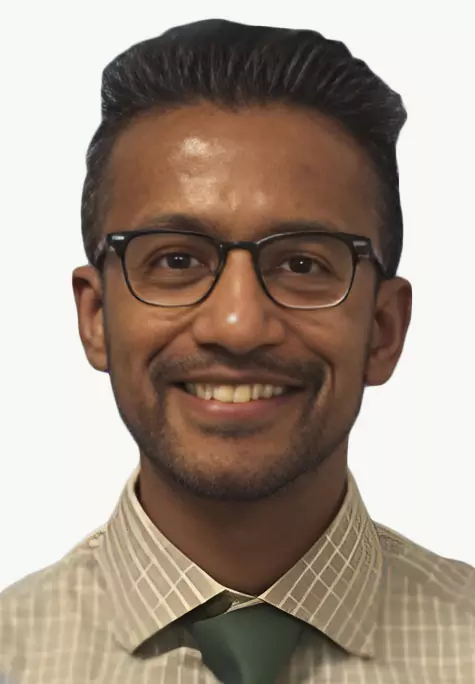
Dr. Tony Issac
Board Certified Psychiatrist in New York & New Jersey (MD)
Dr. Tony Isaac is an experienced double Board Certified Psychiatrist with a keen interest in evaluating and treating mental health illnesses such as insomnia, panic attacks, depression, anxiety, OCD, bipolar disorder and schizophrenia.
Dr. Issac specializes in addiction recovery treatments and medication management and uses a combination of psychotherapy and sensitive medication titration to help his patients achieve a collaborative treatment plan. Using both medication and non-medication techniques, Dr. Issac focuses on recovery and healing, thereby improving the overall mental health of his patients and helping them live a fuller and happier life.
Dr. Issac is popular among his patients for being very kind, respectful, empathetic, articulate, patient, and always willing to listen. He conducts suicide assessments and acute stabilization, which includes working with the family and employer to provide the required care and support.
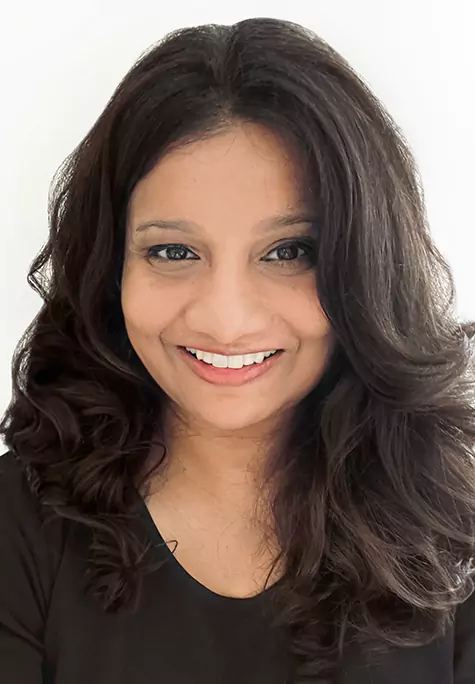
Dr. Gundu Reddy
Board Certified Psychiatrist with Multiple State Licenses MBBS (MD)
Dr. Gundu Reddy is a Board Certified Psychiatrist with over fifteen years of experience practicing clinical psychiatry experience. She also has ten years of experience practicing forensic psychiatry. Dr. Reddy has trained in medication management, psychodynamic psychotherapy, and cognitive behavioral therapy.
Dr. Reddy is interested in integrative psychiatry and believes multiple factors should be considered when evaluating and treating a patient. This, as per Dr. Reddy at includes genetic and developmental factors, medical illness, nutrition, hormones, and environmental and dynamic factors.
Dr. Reddy believes that it is extremely critical to understand psychodynamic conflict and the causes of symptoms while prescribing medication, family, or relationship therapy, understanding psychodynamic conflict and causes of symptoms as will help enhance the quality of care. Apart from psychodynamic training Dr Reddy also has a background in integrative psychiatry and treatment resistance.
Schedule an Appointment with one of our Online Psychiatrists.
Clinical Services: California, Florida, Illinois, New Jersey, New York, South Carolina, Tennessee

Forensic Psychiatry Services: All of the US and Canada
How much does it cost to see an online psychiatrist at Gaba Telepsychiatry?
Your first online appointment with one of our psychiatrists will cost $400. The follow-up appointments will be $250. If you have out-of-network benefits, we can submit claims on your behalf.
Insomnia symptoms
The various symptoms of insomnia disorder include:
- Inability to sleep at night
- Staying awake for long hours in the night
- Difficulty staying asleep throughout the night
- Waking up early and then being unable to fall asleep again
- Not feeling well-rested even after a night’s sleep.
- Intense sleepiness and exhaustion in the day
- Aches and pains – eg. headaches, stomach pain
- Low performance at work and academics
- Inability to focus on tasks and activities
- Exhibiting anxiety and irritable behavior
- Depression and mood swings
- Unwilling to sleep at bedtime (among children and adolescents)
- Disturbed dreams
- Unable to sleep without the help of a caregiver (among children and adolescents)
- Inability to take a nap in the day despite being exhausted
- Increase in mistakes and accidents
- Inability to doze off for a while in the day despite severe exhaustion
- Constant worry, frustration and preoccupation with lack of sleep
DSM-5 Criteria for Diagnosing Insomnia
As per DSM-5, the criterias required to reach a diagnosis for insomnia disorder include:
- Dissatisfaction with the quality or quantity of sleep, and that includes difficulty in falling asleep, remaining asleep or waking up early and then inability to fall asleep again.
- This sleep deprivation causes a great amount of stress and impairs social, occupational, educational, academic, behavioral, or other important areas of functioning.
- Difficulty in sleeping occurs at least three nights per week and is present for at least 3 months.
- The sleep difficulty occurs despite several opportunities to fall asleep.
- Insomnia cannot be better explained by any other physical, mental or sleep-wake disorders such as narcolepsy, a breathing-related sleep disorder, or sleep-wake disorder.
- Mental disorders and medical conditions cannot adequately explain the insomnia experience.
- The sleep disability does not occur due to any substance use or medication.
In order to better diagnose insomnia, physicians use Sleep diary and the Epworth Sleepiness Scale. While a sleep diary helps your doctor to detect changes in your sleep patterns, the Epworth Sleepiness Scale identifies how tired or drowsy you feel when confronted with specific situations such as waiting in a long queue, reading or watching television.
The doctor might also recommend physical examination and blood tests to check for thyroid function and any other disorders.
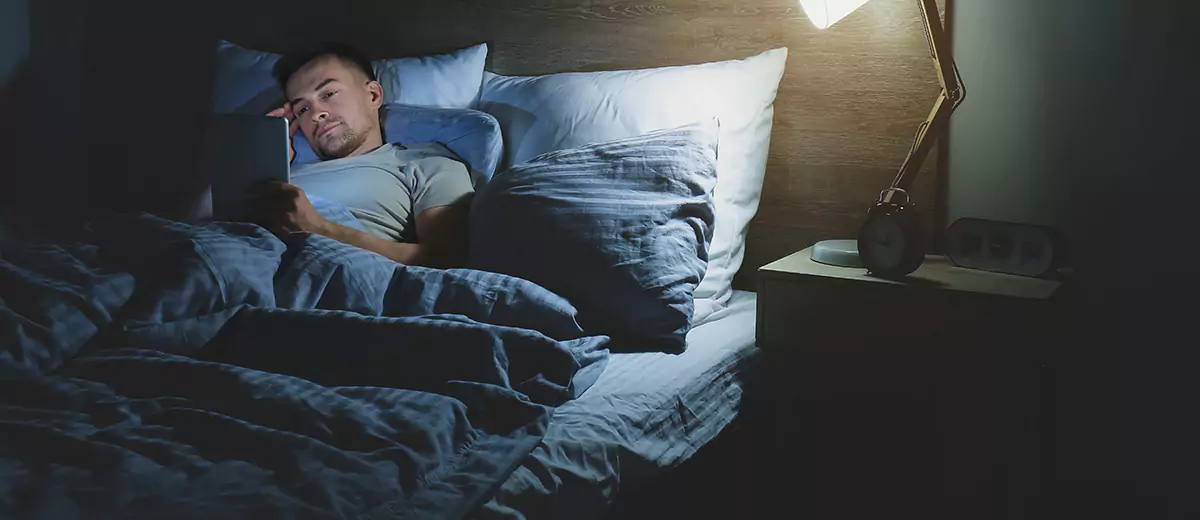
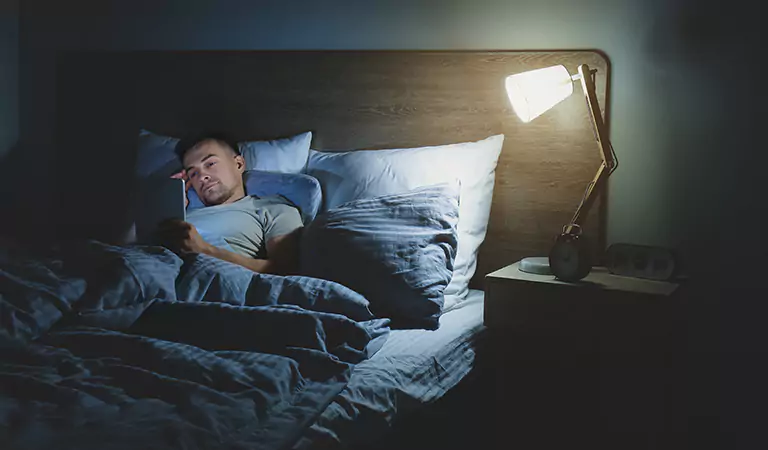
Insomnia Treatment
Insomnia, if left untreated, can cause difficulties at work, school, and affects social, behavioral and all other critical aspects of functioning.
The purpose of insomnia treatment is:
- To help you fall asleep
- To help you stay asleep
- To improve the quality of your sleep
Treatment for insomnia includes, but is not limited to:
- Treating underlying medical illness such as sleep apnoea, asthma, and chronic illnesses.
- Addressing nutrition deficiencies. Vitamins B6, B12, C, D, and E can help enhance sleep quality and duration. Vitamin C deficiency and high as well as low presence of vitamin B6 in the body can affect quality of sleep and cause insomnia.
- Therapy for treatment of insomnia includes, Cognitive behavioral therapy (CBT), relaxation therapy, sleep restriction therapy, and stimulus control therapy are used for the effective treatment of insomnia.
- Treating hormone imbalance, especially hyperthyroidism and progesterone deficiency.
- Addressing external stressors, including financial management, work life balance.
- Addressing relationship and interpersonal stressors.
- Treat other psychiatric illnesses such as anxiety, depression, ADHD, and bipolar disorder which may be exacerbating insomnia.
- Medications for insomnia treatment include: as SSRIs, tricyclic antidepressants, MAOIs, Serotonin modulators, mood stabilizers, and atypicals.
- Supplements for treatment of insomnia include Ashwagandha, Chamomile, Lemon Balm, Valerian Root, Melatonin, GABA, Lavender, CBD Oil, Kava, California Poppy, Glycine, Passionflower, Magnesium, Tart Cherry Juice, and Magnolia Bark among others.


Alternative Treatments For Insomnia
Alternative treatments for insomnia includes:
Yoga as a insomnia treatment : The stretching and relaxing of muscles causes enough physical and mental exertion, which in turn helps in making you fall asleep, with less disturbances.
Meditation for treatment of insomnia : Meditation helps reduce the levels of stress hormone cortisol in your body, and also lowers your heart rate. The theta brain waves that are let out during meditation is the same state that your brain enters when you are just about to fall asleep.
Acupuncture for treatment of insomnia : In acupuncture treatment for insomnia, regulating yin and yang forms a crucial part, and that is accomplished by eliminating the pathogenic, which in turn reinforces health and improves sleep.
Hypnosis as an insomnia treatment : The aim of hypnosis is to replace your negative sleep habits with positive ones. Hypnosis can be an effective treatment for insomnia on its own, and also when combined with cognitive behavioral therapy and other treatments.
Deep tissue relaxation for treatment of insomnia : Deep tissue relaxation helps achieve physical as well as mental relaxation by lowering physical stress and interrupting the thought process that are causing sleep deprivation. The various types of relaxation techniques include progressive muscle relaxation, autogenic training (AT), biofeedback, and imagery (visualizations).
Guided imagery, biofeedback, aromatherapy, relaxation, herbal remedies, and massage are also effective alternative treatment for insomnia.
Insomnia Medication
Your therapist will assess your mental condition, and accordingly prescribe you medications for insomnia which include SSRIs, tricyclic antidepressants, mood stabilizers, neuroleptics, anxiolytics and atypicals. Multiple medicines for the treatment of insomnia must be had in rotation after regular intervals for best results.

Types of Insomnia
There are two main types of insomnia disorder: short-term insomnia and chronic insomnia:
Short-term Insomnia:
Short-term insomnia, also known as acute or adjustment insomnia, lasts for three months or less and occurs due to a stressful event in one’s life. It is a brief period of difficulty in sleeping and is more prevalent in women than men.
Some common causes of acute insomnia include:
- Unfamiliar environment
- Extreme light or sound
- Serious medical diagnosis
- New job, school or college
- Death of a loved one
- Extreme temperature
- Relocation
- Examination or work deadlines
- Relationship breakup
- Physical discomfort (e.g. Pain)
- Medications
Chronic Insomnia:
People suffering from chronic or long-term insomnia find it difficult to sleep or stay asleep for at least three nights in a week for three months or more. Those suffering from chronic insomnia have been struggling with sleep for a long time. Symptoms might disappear after a while (The inability to get sufficient sleep) and later return with long months of episodes at a time. Chronic insomnia, like short-term insomnia, affects women more than men and can affect people of all age groups.
Some common causes of chronic insomnia include:
- Medical condition (eg. chronic pain, diabetes, thyroid illness)
- Mental health problems (e.g. bipolar disorder, schizophrenia)
- Medications (e.g. drugs for blood pressure control)
- Lifestyle changes (e.g. change in shift timing at home)
- Caffeine or use of brain stimulants like nicotine
- Age factors
Onset Insomnia:
Onset insomnia, which can be acute or chronic occurs when you find difficulty in falling asleep. Some of the common causes of onset insomnia include:
- Anxiety or stress
- Use of brain stimulants and use of unwarranted caffeine
- Environmental change
- Extreme physical pain
Maintenance insomnia:
Maintenance insomnia occurs when you face difficulty in staying asleep or waking up early and going off to sleep again.
Some of the common causes of maintenance insomnia include:
- Depression
- Anxiety
- Respiratory problems such as asthma
- Nose blockage
- Chronic physical pain
- Acid reflux disease
Behavioral insomnia of childhood
Behavioral insomnia of childhood (BIC) are of three types, and can mostly be handled with the required behavioral therapy:
- BIC sleep-onset: It occurs when you have a negative relationship with sleep, such as the need to watch TV while trying to get to sleep, or being rocked to sleep. Making a few critical behavioral changes such as sleeping on time, and learning a few relaxation methods can help resolve BIC sleep-onset.
- BIC limit-setting: This takes place when a child refuses to sleep.
- BIC combined type: This is a combination of both BIC sleep-onset and BIC limit-setting.
Pregnancy Insomnia
Pregnancy insomnia or sleep disturbance is common among pregnant women and is characterized by anxiety disorders, breathing related sleep disorders, mood disorders, and restless legs syndrome. In order to cope with insomnia during pregnancy, one must improve sleep hygiene, and may also need behavioral therapies, and pharmacotherapy.
Sleep Disorder
Sleep disorders prevent you from getting quality sleep and providing your body with the required relaxation.
The six common sleep disorders include:
- Insomnia
- Hypersomnia
- Circadian Rhythm Disorders
- Sleep apnea
- Narcolepsy
- Restless Legs Syndrome (RLS).
Let’s delve deeper into the differences between a few critical sleep disorders:
Insomnia vs Hypersomnia
Insomnia is one of the most common and known sleep disorders that centers on inability to fall asleep, not being able to stay asleep, or a combination of two problems. Hypersomnia, on the other hand, is marked by excessive sleeping in the day as well as in the night. Even though people suffering from hypersomnia may receive 11 hours of sleep each day, they may still be exhausted and feel the need to get more sleep.
Insomnia vs Sleep apnea
While insomnia is a condition that makes sleeping difficult to maintain or achieve, sleep apnea is a sleep related breathing disorder (SRBD) characterized by constant and repetitive obstruction of airflow while sleeping. Sleep apnea causes snoring which leads to sudden gasping of breath. It affects sleep quality as you may constantly wake up throughout the night due to inconsistent breathing. This in turn causes morning exhaustion, headaches, drowsiness, irritability, and difficulty in focusing.
Narcolepsy vs Insomnia as a type of sleep disorder
While insomnia makes it challenging to fall or stay asleep, narcolepsy, like hypersomnia, makes you excessively sleepy throughout the day. Symptoms of narcolepsy, which is a rare, chronic neurological sleep disorder, comprises changes in REM (rapid eye movement) sleep patterns and episodes of uncontrollable drowsiness.
Fatal Familial Insomnia as a type of sleep disorder
Fatal familial insomnia (FFI) is a genetic degenerative brain disorder that is very rare and is caused when one or multiple genes do not work properly. The symptoms of FFI include inability to fall asleep. Fatal familial insomnia targets the thalamus, which is that area in the brain that is in control of the sleep-wake cycle. Even though it begins as mild insomnia, it gradually worsens, and eventually leads to physical as well as mental decline.

